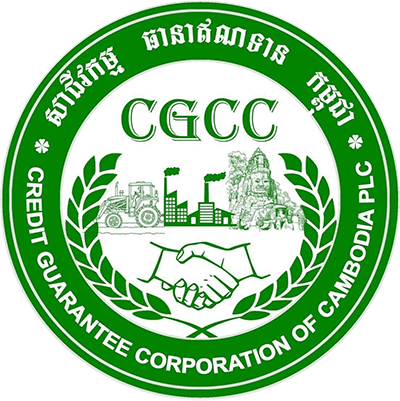Read & Download Full Article in PDF: 5 important things SMEs should understand to apply for guaranteed loans!
Credit guarantee aims to support businesses, especially SMEs, access to formal loans. Under CGCC’s current schemes, CGCC provides credit guarantees on loans disbursed by banks and microfinance institutions that are the participating financial institutions (PFIs) to the borrowers. To reap the benefits of credit guarantees, the borrowers must be ready to apply for loans from the PFIs in the first place. Understanding how the PFIs assess the borrower’s creditworthiness helps the borrower better prepare to get the guaranteed loans.
Conditions

Before approving a loan, the bank must be convinced about the loan purpose and the appropriate loan amount for such purpose. How can the borrowers convince the bank? A reliable business plan and financial statement are good testimony to justify the loan purpose and amount. A proper business plan and financial records not only make it easier to borrow but also allow borrowers to critically examine the current business condition and plan better for success. Precisely, they help gauge the appropriate loan amount and repayment capacity. Indeed, borrowing the right amount matters. A surplus borrowing costs unnecessary accumulated interest, fees, and prepayment penalties, while inadequate borrowing may hinder potential business growth. This is called “condition,” one of the 5 Cs that banks use to evaluate borrowers’ creditworthiness.
Collateral

Given that the condition is satisfied, banks also require “collateral” to protect themselves against loan default. The banks typically provide loans worth about 70% of the borrower’s collateral value. The collateral requirement is one of the main challenges for borrowers’ access to loans from banks. According to IFC, of all small and medium enterprises that approached banks for loans, 66% were rejected because of lacking collateral requirements. This is why CGCC comes in. CGCC provides credit guarantees to banks to act as collateral on behalf of the borrowers. CGCC’s PFIs can assess the borrower’s creditworthiness by treating the credit guarantee as the borrower’s collateral. This reduces the collateral burden for the borrowers when applying for loans.
Capacity

The ability to repay the loan is the fundamental requirement for the bank to approve a loan. Regardless of satisfactory conditions and collateral or CGCC’s guarantees, the banks would not lend, and CGCC cannot guarantee if the borrowers cannot prove that they can repay the loans. So how can the borrower justify the “capacity” to repay? Again, this is when a reliable business plan and financial record can come into play. A proper financial statement tells the borrower’s assets, liabilities, equity, income, and cash flow which are reliable sources to evaluate the repayment capacity. Plus, the business plan describes the future business trajectory in which future income can also be used to justify the repayment capacity.
Capital

If banks provide business loans, they want to know how much own “capital” the borrower put into the business. This matters because it shows the borrower’s commitment to the company where the loan proceeds will be used. It shows “skin in the game.” How can the borrower master this? The proper financial record should show the owner’s equity in the business. Official supporting documents such as partnership agreement and company registration are valid evidence of the borrower’s investment in the company. Usually, banks find it more challenging to assess informal or unregistered businesses because they lack reliable sources of the document to validate their creditworthiness. That is why businesses are encouraged to register to improve their access to finance.
Character

Another criterion to prove the repayment capacity is the “Character” of the borrower. Notably, banks investigate the borrower’s credit records, including loan repayment history, number of loans, and current loan outstanding, etc. The primary purpose is to assess the borrower’s trustworthiness. Currently, Cambodia Credit Bureau (CBC) provides comprehensive credit reporting on individuals and businesses, which is helpful for banks to evaluate the borrower’s character. However, in some instances, if your credit records are not favorable, you need to strengthen other Cs to convince the banks. For example, during the COVID-19 Pandemic, many businesses face challenges leading to late debt repayment and loan default, adversely impacting their “Character” and “Capital.” In this case, to get loans, the borrowers need to demonstrate a solid business plan which can improve “Condition” and “Capacity” and utilize CGCC’s credit guarantees which can improve “Collateral.”
As we can see, the 5Cs – condition, collateral, capacity, capital, and character – are important factors that banks evaluate the borrowers before deciding to lend. Improving the 5Cs increases the chance of getting loans from banks. A reliable financial statement and business plan can be used to validate every Cs, while a credit guarantee can help address the “Collateral” issue.




